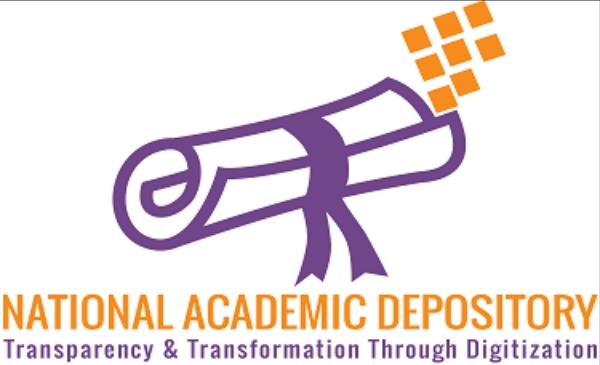What is the Full Form of NADNAD: National Academic DepositoryNAD stands for National Academic Depository. It was created out of a vision to give out all the academic awards online. The National Academic Depository (NAD) is open all the time every second to collect the entire academic awards, such as certificates, diplomas, degrees, mark sheets, etc. The awards are supposed to be digitized and uploaded through academic assessment bodies, boards or institutions registered with NAD. The NAD or National Academic Depository makes sure that the accessibility is given along with retrieving the provision of an academic award. Also, it provides validation and guarantee regarding the authenticity and safety of the award. 
How does NAD or National Academic Depository work?Everyone today has knowledge about the DigiLocker app. It is an initiative through the Digital India program of the Ministry of Electronics & IT (MeitY). The main goal of DigiLocker is to bring empowerment digitally and accessibility to authentic documents in their digital formats to the citizen in their digital wallet. As we know, the digital documents issued through DigiLocker are considered to be similar and valid to the original document in the physical format. Role of UGC in the NAD or National Academic DepositoryOn 27th October 2016, the cabinet decided to set up a digital area for the academic awards in its meeting. As a response, as soon as the cabinet approved, the University Grant Commission (UGC) was given authorization as a unit to go as a single depository to DigiLocker in a Memorandum of Understanding. It was under section 20 (1) of the 1956, University Grants Commission Act that this step was taken. How to register on NAD or National Academic Depository?The following are the details to be followed to get registered with the platform:
What are the features of the NAD or National Academic Depository?The features of the NAD or National Academic Depository are as follows:
What are the services provided by the NAD or National Academic Depository?The following are the services given by the National Academic Depository (NAD):
NAD also let Academic Assessment Bodies, Boards and Institutes link the award to the NAD Accounts of the specific concerned student if needed. Who are the stakeholders of the NAD or National Academic Depository?The following are the stakeholders of the National Academic Depository (NAD):
Which educational institutions are to be covered under NAD or National Academic Depository?The University Grants Commission (UGC) lists the institutes under the NAD. The following are its main categories:
Next TopicFull Form
|
 For Videos Join Our Youtube Channel: Join Now
For Videos Join Our Youtube Channel: Join Now
Feedback
- Send your Feedback to [email protected]
Help Others, Please Share










